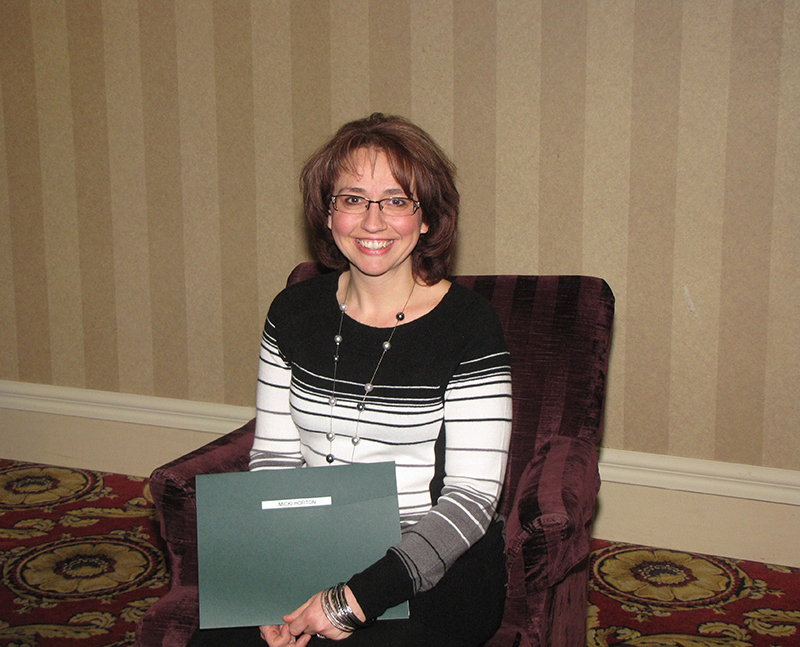RECE wins inaugural award for her commitment to continuous learning
By Sharon Ho
Last fall, Micki Horton RECE received the inaugural Commitment to Continuous Professional Learning and Community Collaboration Award. Horton is a supervisor at the Sven H. Dornberg Centre, in St. Catharines, ON, which provides child care for young parents aged 16-25 years old.
The award was sponsored by the Early Childhood Community Development Centre (ECCDC) and the Niagara Region Children’s Services.
Lorrey Arial Bonilla, executive director of the ECCDC, says the award aims to recognize the importance of lifelong learning. “It’s important for educators to look for opportunities to grow and develop.”
The award also recognizes an RECE’s commitment towards increasing their knowledge, skills and best practices. To nurture that commitment, the prize was an expense-paid trip for Horton to attend the College of Early Childhood Educators’ Annual Meeting of Members in Toronto this past January. The meeting provides a professional learning opportunity for attendees through special presentations by esteemed speakers on early childhood education.
Standard IV: A.1 of the Code of Ethics and Standards of Practice states that RECEs are current in their professional knowledge related to early learning. Horton work shows her commitment to the standard. Therefore the award was a significant personal and professional achievement for her.
Horton was recognized for her work on pedagogical leadership, an area she is familiar with after attending a training workshop that discussed the core values in early childhood education and positive leadership. Horton has also gained knowledge through her participation in the Supervisor’s Network and Children are Learning Pillar Committee of the Niagara Children’s Planning Council.
Horton says that lessons such as ones on pedagogical leadership motivate her and her colleagues to be pro-active in their learning. “It allows me to stay on top of changes,” says Horton. “I also bring back knowledge to share with staff. In turn it helps the centre, our team and children and the families we serve.”
Horton demonstrated leadership as an RECE by creating a parent literacy project in order to build stronger relationships with the parents and children. By undertaking this project, Horton strove to build and maintain reciprocal relationships with families, which is an expectation for RECEs as outlined in Ethic. B of the Code of Ethics and Standards of Practice. The project strengthened literacy skills and included activities such as scrapbooking between parents and children. The feedback for Horton’s parent literacy project was positive.
“It created stronger connections between staff and parents,” says Horton. “All of the parents were nervous at the start. But we provided a relaxed atmosphere. Sharing photos helped strengthen our relationships and communication.”
Standard I: E. outlines that RECEs are expected to establish professional and caring relationships with children and families. Horton recognizes the value of maintaining these positive relationships and considers this within her practice.
By understanding children in the context of their families, Horton also demonstrated Standard I: A.
Horton was also recognized for her work in facilitating strong connections between the children and their community by creating a vegetable garden. The children planted seeds for vegetables including beans, tomatoes, zucchini and pumpkins. Parents enjoyed seeing the enthusiasm and excitement of the children in growing their own food.
By getting children involved in gardening, Horton acknowledged the value of nature and a healthy lifestyle as stated in Standard III: B.2 and B.3.
“It supported healthy eating and healthy living,” says Horton. “The staff incorporated the planting throughout the day. The children were excited to get into the garden.”
